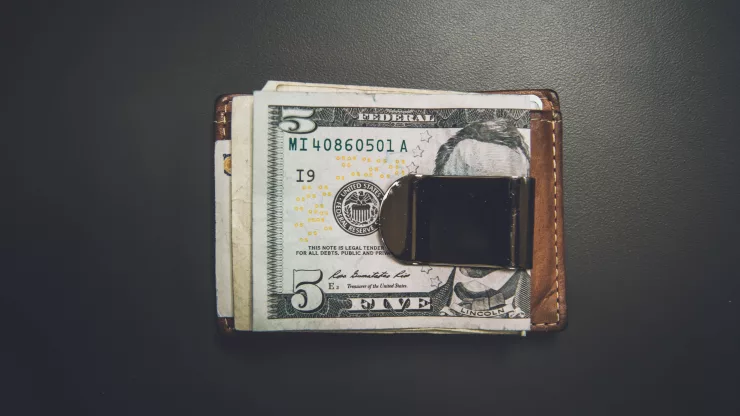According to a recent survey, 32% of Americans have had trouble paying medical bills in the past year. Medical debt can have a crushing effect on your finances and even your credit score.
But don’t worry, there are strategies for paying off medical debt that can help you get back on track.
Jump to Section
Introduction
Medical debt can happen to anyone, regardless of income or insurance coverage. It’s important to take steps to address it before it becomes overwhelming.
In this article, we’ll explore some strategies for paying off medical debt and avoiding it in the future.
The problem of crushing medical debt
Medical debt is a major issue in the United States, with many people struggling to pay off bills that are beyond their means. In fact, medical debt is the leading cause of bankruptcy in the country.
It’s important to take action before your debt spirals out of control.
Understand Your Medical Bills
The first step in addressing medical debt is to understand your bills. This involves familiarizing yourself with common billing terms and codes, as well as learning how to dispute errors in your bills.
What are the common billing terms and codes?
Medical billing can be confusing, but there are some common terms and codes that you should be aware of. These include:
- CPT codes: These are codes used to identify medical procedures and services.
- ICD-10 codes: These are codes used to identify medical diagnoses.
- Explanation of Benefits (EOB): This is a statement that shows how much your insurance company will pay and how much you owe.
- Balance billing: This occurs when you are billed for the difference between what your insurance covers and what you owe.
How to dispute errors in your medical bills?
It’s not uncommon for medical bills to contain errors, such as incorrect coding or charges for services you didn’t receive.
If you spot an error, you should contact your healthcare provider’s billing department and ask for a correction.
If you can’t resolve the issue with the provider, you can file a complaint with your state’s insurance commissioner.
| Error | How to dispute |
|---|---|
| Charged for services you didn’t receive | Ask for an itemized bill and dispute the charges |
| Incorrect coding | Ask for a correction from the billing department |
| Billed for the wrong amount | Contact the billing department and ask for a correction |
Negotiate your medical bills
Another strategy for paying off medical debt is to negotiate your bills with your healthcare provider. This involves asking for a discount, offering a lump-sum payment, or asking for a payment plan.
Contact your healthcare provider and ask for a discount
Many healthcare providers offer discounts for patients who pay their bills in full or upfront. Contact your provider’s billing department and ask if they offer any discounts or payment plans.
Offer a lump-sum payment
If you’re able to pay off your medical debt in one lump sum, you may be able to negotiate a lower overall balance. Contact the billing department and offer to pay a lump sum in exchange for a discount.
Ask for a payment plan
If you’re unable to pay your medical bill in full, ask your healthcare provider if they offer payment plans. This can help you pay off your debt over time, without accruing additional interest or fees.
Consider hiring a medical billing advocate
If you’re having trouble navigating the medical billing process, consider hiring a medical billing advocate. These professionals can help you negotiate your bills and dispute errors on your behalf.
Explore Government Assistance Programs
There are several government assistance programs that can help you pay off medical debt, including Medicaid, Medicare, and the Affordable Care Act (ACA).
Medicaid
Medicaid is a joint federal and state program that provides healthcare coverage to low-income individuals. If you qualify for Medicaid, you may be eligible for assistance with your medical bills.
Medicare
Medicare is a federal program that provides healthcare coverage to people over the age of 65, as well as people with certain disabilities. If you’re eligible for Medicare, it may cover some or all of your medical bills.
The Affordable Care Act (ACA)
The ACA, also known as Obamacare, provides subsidies to help people with low or moderate incomes pay for health insurance. If you’re struggling to pay your medical bills, you may be eligible for ACA subsidies.
Seek additional financial help
If you’re still struggling to pay off your medical debt, there are other options to consider, including crowdfunding, personal loans, and charitable organizations.
Crowdfunding
Online crowdfunding platforms, such as GoFundMe, can help you raise money to pay off your medical bills. This can be a good option if you have a large network of friends and family who are willing to donate.
Personal loans
If you’re unable to secure a loan from a traditional lender, you may be able to get a personal loan from an online lender. These loans typically have higher interest rates than traditional loans, but they can help you pay off your medical debt.
Charitable organizations
There are many charitable organizations that offer assistance to people with medical debt. Some of these organizations focus on specific illnesses or demographics, so it’s important to do your research and find one that fits your needs.
How to avoid Medical Debt in the Future
Prevention is key when it comes to avoiding medical debt. Here are some steps you can take to protect yourself:
Review and understand your health insurance policy
Before you receive medical care, make sure you understand your health insurance policy and what it covers. This can help you avoid surprise bills and unnecessary expenses.
Take proactive measures to prevent illnesses
Maintaining a healthy lifestyle can reduce your risk of developing certain illnesses and help you avoid costly medical bills.
Build an emergency fund for medical expenses
Setting aside money for medical expenses can help you avoid debt in the event of an unexpected illness or injury.
Conclusion
Strategies for Paying off Medical Debt
Medical debt can be overwhelming, but there are strategies you can use to pay it off and avoid it in the future. By understanding your medical bills, negotiating with your healthcare provider, exploring government assistance programs, seeking additional financial help, and taking preventative measures, you can get back on track and protect your financial well-being.
Frequently Asked Questions
How can I dispute errors in my medical bills?
If you spot an error in your medical bill, you should contact your healthcare provider’s billing department and ask for a correction. If you can’t resolve the issue with the provider, you can file a complaint with your state’s insurance commissioner.
What should I do if I can’t pay my medical bills?
If you’re unable to pay your medical bills, you should contact your healthcare provider’s billing department and ask if they offer payment plans or discounts. You may also want to explore government assistance programs and other financial resources, such as personal loans and charitable organizations.
How can I avoid medical debt in the future?
To avoid medical debt in the future, make sure you understand your health insurance policy, take proactive measures to prevent illnesses, and build an emergency fund for medical expenses.

With a deep passion for personal development, Ben has dedicated his career to inspiring and guiding others on their journey towards self-improvement.
His love for learning and sharing knowledge about personal growth strategies, mindfulness, and goal-setting principles has led him to create My Virtual Life Coach.
Contact Ben at [email protected] for assistance.




